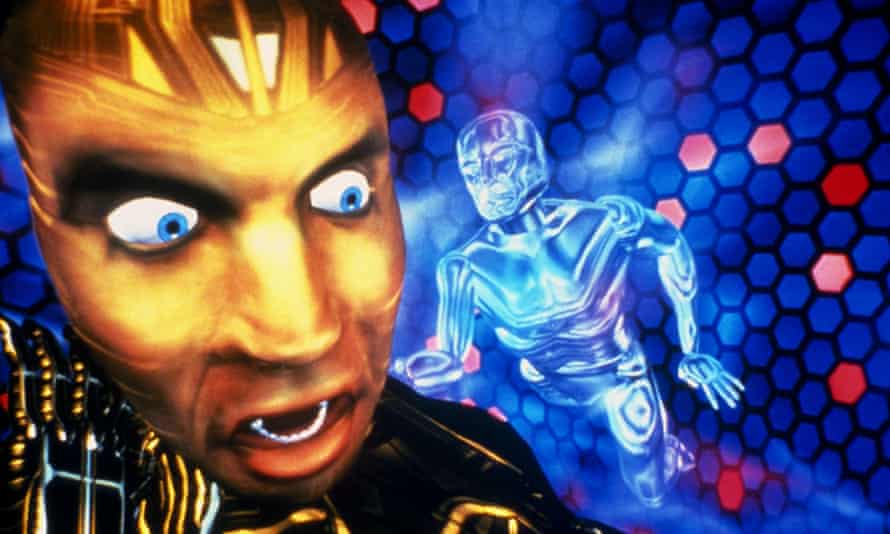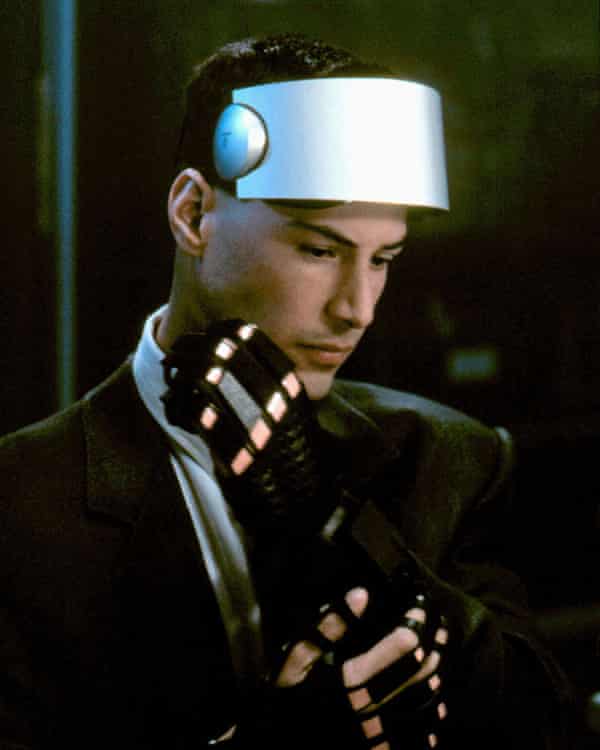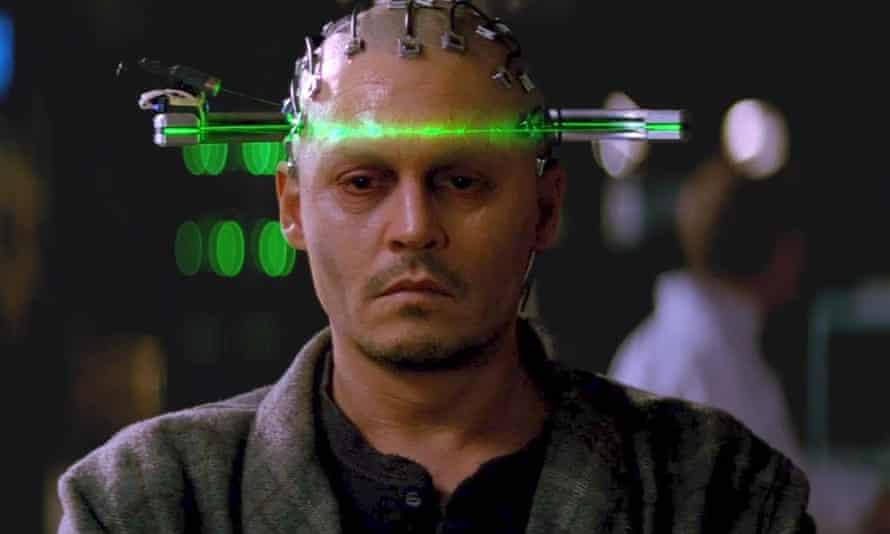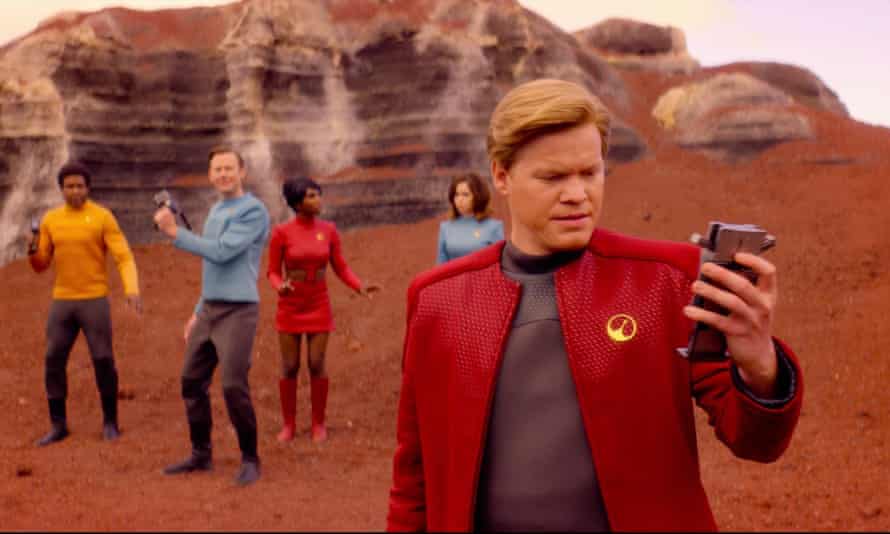If We Upload Our Minds It Isnt Us Existing
I magine that a person's brain could exist scanned in groovy particular and recreated in a figurer simulation. The person's mind and memories, emotions and personality would be duplicated. In upshot, a new and every bit valid version of that person would now exist, in a potentially immortal, digital course. This futuristic possibility is chosen mind uploading. The science of the brain and of consciousness increasingly suggests that mind uploading is possible – there are no laws of physics to prevent it. The technology is probable to be far in our future; information technology may be centuries earlier the details are fully worked out – and still given how much interest and effort is already directed towards that goal, mind uploading seems inevitable. Of course nosotros can't be certain how it might touch on our civilization but as the engineering science of simulation and artificial neural networks shapes upwardly, nosotros can gauge what that mind uploading hereafter might be similar.
Suppose one day you go into an uploading clinic to take your brain scanned. Let's exist generous and pretend the engineering works perfectly. It'southward been tested and debugged. It captures all your synapses in sufficient detail to recreate your unique mind. Information technology gives that mind a standard-issue, virtual torso that's reasonably comfortable, with your face and voice attached, in a virtual environs like a high-quality video game. Let'southward pretend all of this has come truthful.
Who is that second y'all?
The first you lot, permit's call it the biological y'all, has paid a fortune for the process. And withal you walk out of the clinic only as mortal every bit when you walked in. Y'all're however a biological being, and somewhen you lot'll die. As you drive home, yous retrieve: "Well, that was a waste of money."
At the same time, the imitation yous wakes upward in a virtual apartment and feels like the same one-time you. It has a continuity of feel. It remembers walking into the clinic, swiping a credit carte du jour, signing a waiver, lying on the table. It feels as though it was anaesthetised and then woke upwards once more somewhere else. It has your memories, your personality, your thought patterns and emotional quirks. Information technology sits upwards in a new bed and says: "I tin't believe it worked! Definitely worth the cost."

I won't call it an "it" any more, because that mind is a version of you. We'll call it the simulated you. This "sim" you decides to explore. Y'all step out of your apartment into the sunlight of a perfect twenty-four hours and find a virtual version of New York Urban center. Sounds, smells, sights, people, the feel of the sidewalk underfoot, everything is nowadays – with less garbage though, and the rats are entirely sanitary and put in for local colour. You chat upward strangers in a manner you would never do in the existent New York, where you'd be worried that an impatient pedestrian might punch y'all in the teeth. Here, y'all can't be injured because your virtual body can't break. Yous cease at a buffet and sip a latte. It doesn't taste right. It doesn't feel like anything is going into your breadbasket. And nada is, because it isn't real food and you don't have a tummy. Information technology'south all a simulation. The visual detail on the table is imperfect. At that place's no grittiness to the rust. Your fingers don't have fingerprints – they're shine, to save memory on fine detail. Animate doesn't feel the same. If you lot hold your breath, you lot don't go dizzy, because there is no such matter every bit oxygen in this virtual globe. Y'all find yourself equipped with a complementary simulated smartphone, and you call the number that used to be yours – the phone y'all had with you, just a few hours ago in your feel, when you walked into the clinic.
At present the biological you answers the phone.
"Yo," says the sim you. "It's me. I hateful, information technology's you. What'south upwardly?"
"I'm depressed, that's what. I'm in my apartment eating ice-cream. I can't believe I spent all that coin for zilch."
"Nothing?! You would non believe what it'southward like in hither! It's a fantastic place. Remember Kevin, the guy who died of cancer last week? He's here likewise! He's fine, and he still has the same job. He Skypes with his old yoga studio iii times a week, to teach his fitness class. Only his girlfriend in the existent world has left him for someone who's not dead still. Notwithstanding, lots of new people to date hither."
I accept to resist getting carried abroad by the humor of the state of affairs. Underneath the details lies a very real philosophical puzzler that people will eventually have to confront. What is the relationship betwixt bio you and sim yous?

I prefer a geometric way of thinking about the situation. Imagine that your life is similar the ascent stalk of the alphabetic character Y. Yous're born at the base, and every bit yous grow up, your mind is shaped and changed along a trajectory. Then you allow yourself be scanned, and from that moment on, the Y has branched. In that location are at present two trajectories, each one equally and legitimately you lot. Permit's say the left-hand co-operative is the simulated you and the right-mitt co-operative is the biological y'all. The part of you that lives indefinitely is represented by both the stalk of the Y and the left-paw co-operative. Only as your childhood self lives on in your developed self, the stalk of the Y lives on in the simulated self. One time the scan is over, the two branches of the Y proceed forth different life paths, accumulating different experiences. The right-hand branch volition die. Everything that happens to it later the branching point fails to achieve immortality – unless it chooses to scan itself again, in which instance some other branch appears, and the geometry becomes even more than complicated.
What emerges is not a single you, just a topologically intricate version, a hyper yous with two or more branches. One of those branches is always going to be mortal, and the others have an indefinite lifespan depending on how long the reckoner platform is maintained.
You might think that since the bio you lives in the existent world, and the sim you lot lives in a virtual globe, the two volition never meet and therefore should never see any complications from circumstantial. But these days, who needs to meet in person? We interact mainly through electronic media anyway. The sim you and the bio you lot represent 2 fully functional, interactive, capable instances of you, competing within the same larger, interconnected, social and economic universe. You could hands find yourselves meeting over video briefing.
At the simplest level, heed uploading would preserve people in an indefinite afterlife. Families could accept Christmas dinner with sim Grandma joining in on video briefing, the tablet screen propped upward at the end of the table – presuming she has time for her bio family any more, given the rich possibilities in the simulated playground. It's this kind of idealised afterlife that people have in heed, when they call back about the benefits of mind uploading. Information technology's a human being-made heaven.
But unlike a traditional sky, it isn't a split world. Information technology'southward seamlessly connected to the existent world. Remember of how you interact with the world right now. If you lot live the typical western lifestyle, then the smallest part of your life involves interacting with people in the physical space around you. Your connexion to the larger world is almost entirely through digital means. The news comes to y'all on a screen or through earbuds. Distant locations are real to y'all mainly because you acquire almost them through electronic media. Politicians, celebrities, even some friends and family unit may exist to y'all mainly through data. People work in virtual offices where they know their colleagues only through video and text.

Each of us might as well already be in a virtual world, with a steady menstruation of data passing in and out through CNN, Google, YouTube, Facebook, Twitter and text. Nosotros live in a kind of multiverse, each of us in a different virtual bubble, the bubbling occasionally merging in real space and and then separating, but always connected through the global social network. If a virtual afterlife is created, the people in it, with the same personalities and needs that they had in existent life, would have no reason to isolate themselves from the remainder of united states of america. Very little needs to change for them. Socially, politically, economically, the virtual and the real worlds would connect into one larger and always expanding civilisation. The virtual globe might equally well be simply some other city on Earth, filled with people who take migrated to it.
We've always lived in a earth where civilisation turns over with each generation. But what happens when the older generations never die, but remain only every bit active in guild? In that location's no reason to recall that the living will accept any political, economical, or intellectual advantage over the simulated.
Think of the jobs people have in our world. Many of them require physical action, and those are the jobs that volition probably be replaced by automatons. Taxi driver? Publicly shared, self-driving cars are almost here. Street cleaners? Checkout operators? Structure workers? Pilots? All of these jobs are probably for the chopping block in the medium to long term. Robotics and artificial intelligence volition have them over. The residue of our jobs, our contributions to the larger world, are done through the mind, and if the listen tin can be uploaded, it can keep doing the aforementioned job. A politico can work from cyberspace just also every bit from real space. So can a teacher, or a manager, or a therapist, or a announcer, or the guy in the complaints section.

The CEO of a company, a Steve Jobs type who has shaped up a sweetness set of neural connections in his brain that makes him exceptional at his work, can manage from a remote, simulated office. If he must milk shake hands, he can take temporary possession of a humanoid robot, a kind of shared rent-a-bot, and spend a few hours in the real world, meeting and greeting. Even calling it the "real" world sounds prejudicial to me. Both worlds would be equally real. Peradventure the improve term is the "foundation" world and the "cloud" world.
The foundation world would exist full of people who are mere youngsters – mainly nether the age of lxxx – who are nevertheless accumulating valuable experience. Their unspoken responsibility would be to gain wisdom and experience before joining the ranks of the cloud earth. The rest of power and civilisation would shift rapidly to the cloud. How could it not? That's where the noesis, feel and political connections will accumulate. In that scenario, the foundation world becomes a kind of larval stage for immature minds, and the deject globe is where life really begins. Heed uploading could transform our culture and culture more than profoundly than annihilation in our past.
Michael SA Graziano is a professor of psychology and neuroscience at Princeton Academy
Source: https://www.theguardian.com/technology/2019/oct/20/mind-uploading-brain-live-for-ever-internet-virtual-reality
Postar um comentário for "If We Upload Our Minds It Isnt Us Existing"